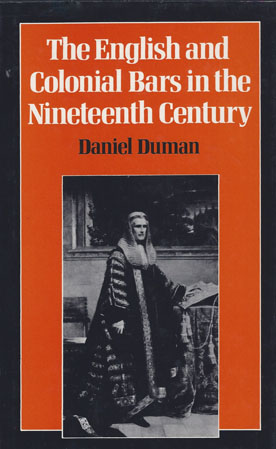
Out of Print
There is ample reason for the nineteenth century English bar to claim the title of the nation's premier profession for, while it was by far the smallest of the major professions, its members were among the most ubiquitous of professional men.
Not only did the barristers have a monopoly over seats on the judicial bench, but they accounted for one fifth of the members of the House of Commons, were well represented in every government and provided a steady flow of recruits to the House of Lords. Furthermore, in an age of professionalism that was characterised by authority and autonomy, the bar represented a profession that had succeeded in establishing absolute self-government free of any external supervision.
Based largely on literary sources, this book explores the impact of a changing society on the legal profession. Of central concern is the practising bar of England and Wales and its evolution from a small, highly centralised and homogeneous profession to a mass body that had lost much of its corporate unity.
This study also examines the role of the inns of court as forging grounds for members of the governing elite and looks at the participation of barristers in the world of business, as well as considering the structure of the colonial legal profession.